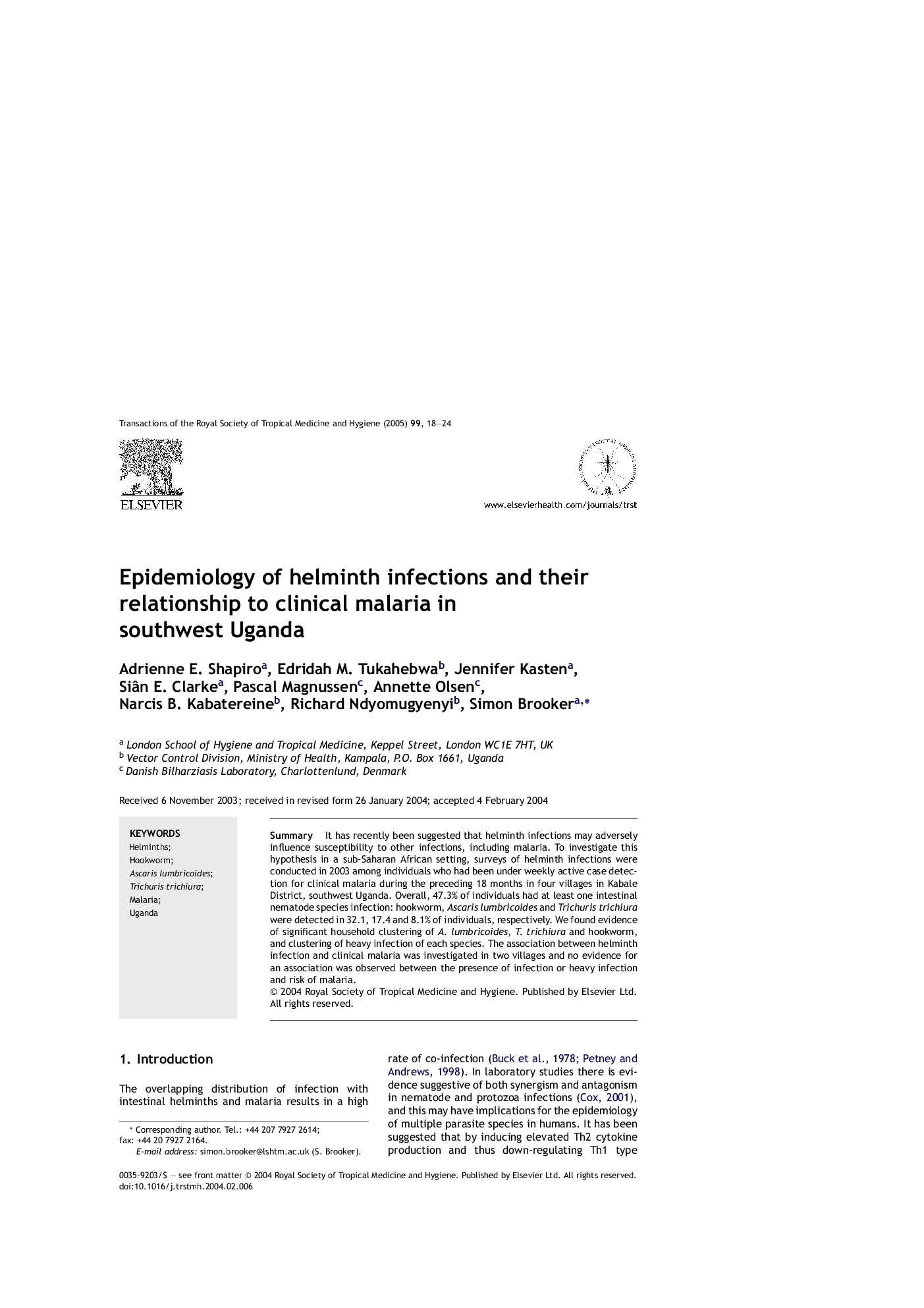| Article ID | Journal | Published Year | Pages | File Type |
|---|---|---|---|---|
| 10030666 | Transactions of the Royal Society of Tropical Medicine and Hygiene | 2005 | 7 Pages |
Abstract
It has recently been suggested that helminth infections may adversely influence susceptibility to other infections, including malaria. To investigate this hypothesis in a sub-Saharan African setting, surveys of helminth infections were conducted in 2003 among individuals who had been under weekly active case detection for clinical malaria during the preceding 18 months in four villages in Kabale District, southwest Uganda. Overall, 47.3% of individuals had at least one intestinal nematode species infection: hookworm, Ascaris lumbricoides and Trichuris trichiura were detected in 32.1, 17.4 and 8.1% of individuals, respectively. We found evidence of significant household clustering of A. lumbricoides, T. trichiura and hookworm, and clustering of heavy infection of each species. The association between helminth infection and clinical malaria was investigated in two villages and no evidence for an association was observed between the presence of infection or heavy infection and risk of malaria.
Related Topics
Life Sciences
Immunology and Microbiology
Applied Microbiology and Biotechnology
Authors
Adrienne E. Shapiro, Edridah M. Tukahebwa, Jennifer Kasten, Siân E. Clarke, Pascal Magnussen, Annette Olsen, Narcis B. Kabatereine, Richard Ndyomugyenyi, Simon Brooker,
